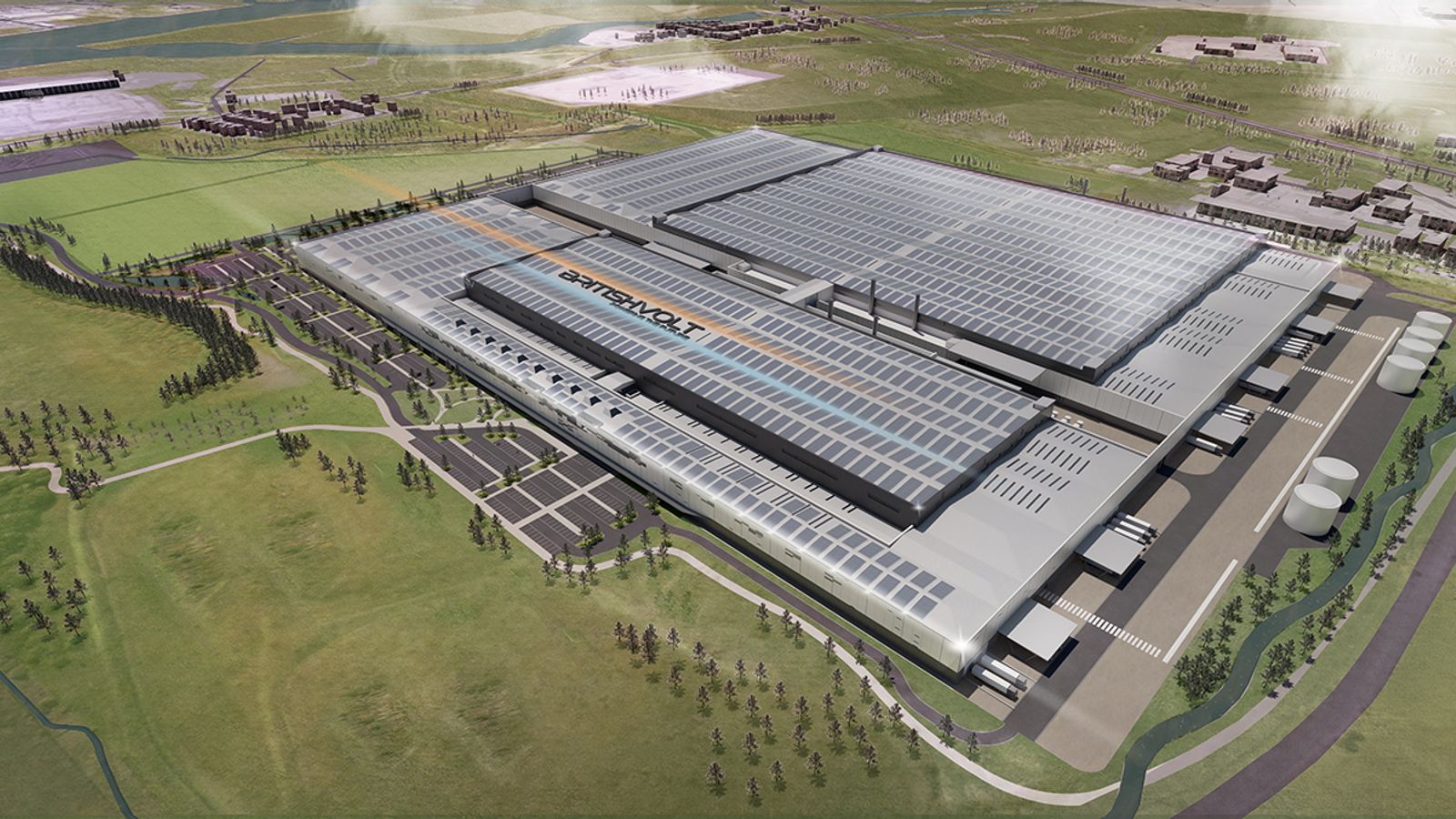The company behind a planned battery gigafactory to help power the UK’s electric car future is on the brink of collapse because £100m of promised government funding is yet to be paid, a source has told Sky News.
It was revealed in January that BritishVolt’s plans for the site in Northumberland had secured financial backing from the Automotive Transformation Fund (ATF), which was established to help bolster the transition to electric vehicles.
The £3.8bn project was also supported by £1.7bn of private funding.
However, much of that was dependent on the government support not only being agreed – but paid.
It is understood that the company, which employs around 300 staff, has found it difficult to get an answer over the apparent delay which has forced it to seek cash elsewhere in recent months at a time of turmoil on financial markets.
The Financial Times reported on Monday that the company could slide into insolvency later in the day.
The ATF funds are conditional on certain criteria being met.
Purplebricks founder’s property portal Boomin turns to bust
Demand for mortgages falls as customers grapple with high rates
Food shortage and inflation risks rise after Russia withdraws from Black Sea export deal
In response to a request for a statement, a Department for Business, Energy and Industrial Strategy spokesperson told Sky News: “We are determined to ensure the UK remains one of the best locations in the world for automotive manufacturing as we transition to electric vehicles, while ensuring taxpayer money is used responsibly and provides best-value.
“We do not comment on speculation or the commercial affairs of private companies.”
A Britishvolt statement read: “We are aware of market speculation. We are actively working on several potential scenarios that offer the required stability.
“We have no further comment at this time.”
The company has faced uncertainty in recent months, with co-founder Orral Nadjari leaving the firm in July.
It has been hunting further funding to bolster its development ahead of the start of production, which was scheduled for 2024 ahead of the 2030 ban on the sale of new diesel and petrol-powered cars to combat climate change.
Britishvolt intends to manufacture power cells for 300,000 electric vehicle battery packs a year at the planned factory, eventually employing 3,000 people, on the site of the former coal-fired Blyth Power Station.
Labour said the government was clearly to blame for the company’s financial troubles.
Shadow business secretary Jonathan Reynolds said: “This disastrous news is a further reminder that the economic crisis made in Downing Street is costing jobs and investment.
“It is a sight that has become all too familiar – businesses going under, jobs being lost and investment in the industries of the future going abroad rather than the UK.
“The blame here lies with a Conservative government that has run Britain’s economy down over 12 years, failed to back growing industries as other countries have and has completely failed to grow our economy.”






